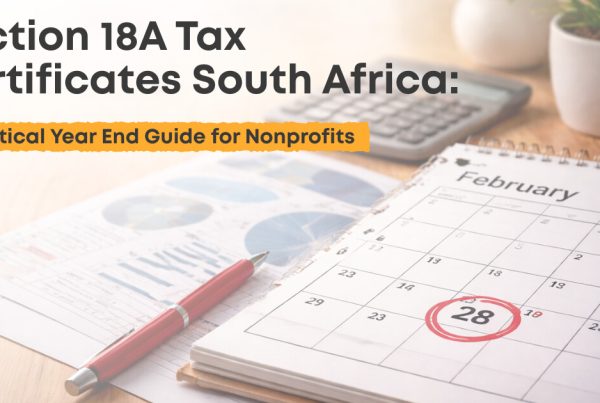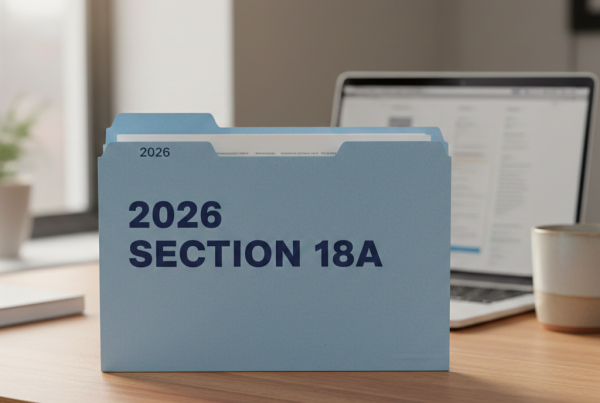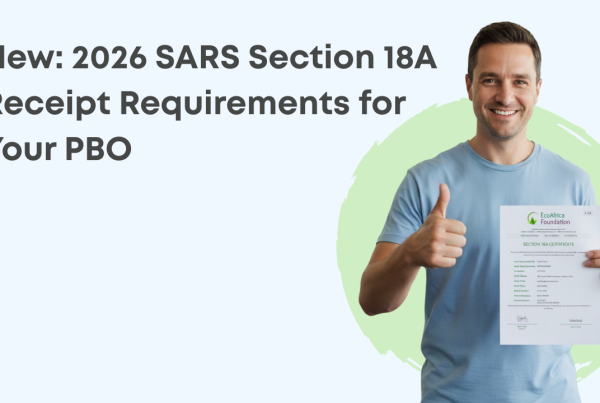
The greylisting of South Africa in November 2022 had significant repercussions on the country’s ability to borrow funds from overseas and had an extensive impact on the economy. In response, our government implemented a series of regulations aimed at achieving compliance and mitigating the effects of the greylisted status. One sector directly affected by these measures is that of Non-Profit Organizations (NPOs).
According to the regulations outlined in the NPO Act, NPOs must register with the Dept. of Social Development
- if they engage in activities such as making donations to individuals or organizations outside of South Africa or providing humanitarian, charitable, religious, educational, or cultural services outside the country; or
- if they receive funds from outside of South Africa.
These measures have been put in place to combat money laundering and prevent the financing of terrorism.
Additionally, there is a specific focus on ensuring transparency regarding the ownership structure of organizations operating as Non-Profit Companies (NPCs) or Trusts. These entities are required to submit “Beneficial Ownership” details to either the Companies and Intellectual Property Commission (CIPC) or the Masters Office, depending on the organizational structure. This requirement aims to identify and disclose the ultimate beneficiaries of NPOs, providing a tool to combat illicit financial activities.
These regulatory measures underscore the government’s commitment to addressing international concerns related to financial transparency and integrity. By aligning with global standards in combating money laundering and terrorism financing, South Africa aims to improve its standing in the international financial community and regain access to borrowing from overseas sources. The impact of these regulations, particularly on NPOs, emphasizes the broader implications of global financial regulations on local entities and underscores the interconnected nature of the world economy.
Third-Party Submissions
In addition, SARS now instructs 18A-PBOs to upload their Section 18A Tax certificates to SARS. Failure to do so means that donors will not be able to claim their donations as a tax deduction. The responsibility lies with the PBO to furnish SARS with compliant Section 18A Tax certificates.
The additional information requirements are applicable to all Section 18A Tax Certificates issued from 1 March 2023. This process ensures that SARS can verify the Section 18A Tax Certificates and cross-reference it with the information uploaded by the 18A-PBO.
The 18A-PBO is responsible for retaining the above information and making it available to SARS upon request.
To read more on the new requirements for compliant Section 18A Tax Certificates, click here: “New Section 18A Regulations for 2023”
What does this mean for the PBO
All certificates issued by an 18A-PBO throughout the financial year (from March 2023 to February 2024) will need to be complied into an IT3(d) data submission form.
Requirements and ways to upload IT3(d) data submission forms:
- If you have issued 20 Section 18A certificates throughout the financial year, then you can use the SARS eFiling to submit the details of each certificate issued. For more information on how to upload via eFiling, click here.
- If you issued more than 20 Section 18A certificates throughout the financial year, then you need to generate and submit the file as outlined in this SARS document.
Please refer to the links below for more information on how to upload:
- HTTPs (secure gateway) – SARS Upload Guide
- Connect:Direct – SARS Upload Guide
Conclusion: Pain or Gain?
South Africa’s response to its greylisting in November 2022 has led to comprehensive regulatory measures aimed at enhancing financial transparency and integrity. The impact on NPOs, particularly regarding the registration requirements and beneficial ownership disclosure, underscores the government’s commitment to addressing global concerns.
The additional measures imposed by the SARS on 18A-PBOs highlight the importance of donor information verification for tax deductions. For these organisations, compliance involves meticulous record-keeping and technological solutions to streamline the submission process.
Non compliance in uploading 18A certificates onto SARS portfolio would seriously damage an organisation’s reputation and credibility, ultimately resulting in the unfortunate loss of donors and funding.
Simplify Your NPO Administration with ActiveDonor:
Trusted by South African NPOs since 2017, ActiveDonor is the leading cloud-based donor management solution designed specifically for local organizations. Streamline your NPO operations today and focus on what matters most – your mission. ActiveDonor offers:
- Instant Compliant IT3(d) Returns
- Easy to use donor management
- Automated donation receipting
- Effortless Section 18A compliance
- Project Fundraising campaign tracking
- Comprehensive reporting tools






